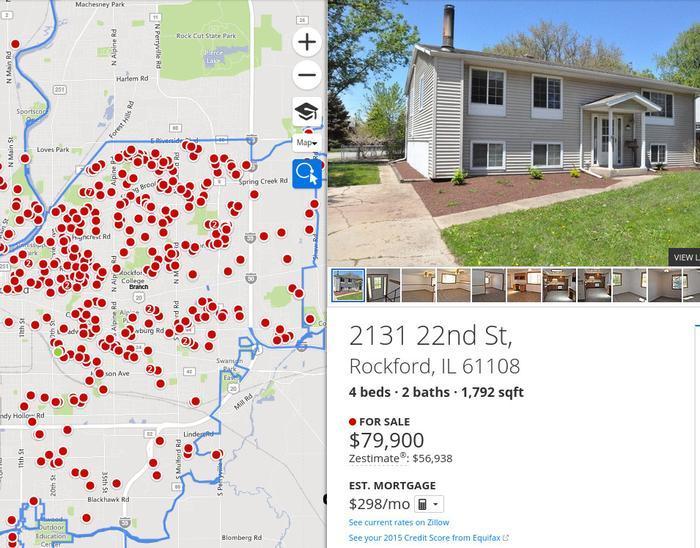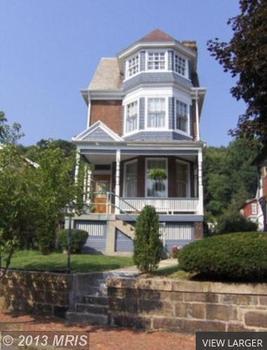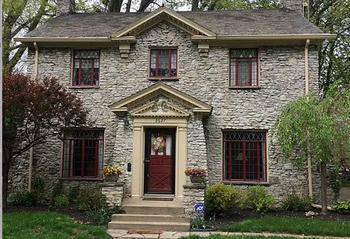The 5 cheapest housing markets in America
The biggest bargains appear to be in the evolving Rust Belt

Mark Huffman has been a consumer news reporter for ConsumerAffairs since 2004. He covers real estate, gas prices and the economy and has reported extensively on negative-option sales. He was previously an Associated Press reporter and editor in Washington, D.C., a correspondent for Westwoood One Radio Networks and Marketwatch. Read Full Bio→

 You probably know where America's most expensive homes are. According to the National Association of Realtors (NAR), they are mostly in California, stretching from Silicon Valley south to San Diego.
You probably know where America's most expensive homes are. According to the National Association of Realtors (NAR), they are mostly in California, stretching from Silicon Valley south to San Diego.
How about the cheapest? These markets tend to be small and in the Rust Belt, which explains in large part why houses there are so cheap. All appear to have suffered some significant economic setback in the last two decades.
Still, if it didn't matter where you lived and you wanted the most house for the buck, these five metro areas might be worth a look. When we investigated we found there were quite a few jaw-dropping bargains.
Youngstown-Warren-Boardman, Ohio
According to NAR, this is the nation's cheapest housing market, where in the first quarter the median single-family home sold for $64,300. That's not a typo.
Youngstown is a city in northeast Ohio about an hours drive from both Cleveland and Pittsburgh. It was once a center for steel production and, while production isn't what it once was, several steel companies in the area are thriving and GM operates a major plant there.
Still, the metro has lost 40,000 manufacturing jobs, 400 satellite businesses and an estimated $414 million in personal income. The results of all that show up in the real estate market, which continues to be battered by foreclosures.
However, if you were looking for a small entry level home, in move in condition, on the city's west side, you could pick up this 4-bedroom, 1-bath charmer for $30,000.
Cumberland, Md.
 Cumberland, Md., is another once bustling industrial center that has seen its jobs go elsewhere. But nestled in the Allegheny Mountains in Maryland's panhandle, equidistant from Pittsburgh and Washington, DC, Cumberland is a picturesque spot.
Cumberland, Md., is another once bustling industrial center that has seen its jobs go elsewhere. But nestled in the Allegheny Mountains in Maryland's panhandle, equidistant from Pittsburgh and Washington, DC, Cumberland is a picturesque spot.
Cumberland is the second cheapest metro in which to buy a home, with a median price of $71,600. According to the 2010 Census the city has a population of about 20,000 while the metro, which includes nearby Frostburg and a state university, has a population of 103,000.
Cumberland has an active preservationist community that has saved and restored a lot of its most architecturally significant buildings and homes, especially in the Washington Street Historic District.
Overlooking the historic district you'll find this bargain – a 4-bedroom 2-bath 3-story Queen Anne style row house built in 1890, selling for $71,000. At 2,100 square feet, that works out to $34 per square foot.
Rockford, Ill.
Rockford, Ill., was the third cheapest home market in the U.S. in the first quarter. Its median home price of $78,600 was dragged down by the scores of homes for sale at prices of $30,000 or less. Homes there tend to be really cheap or fairly expensive.
Rockford, in the northernmost region of the state, is Illinois' third largest city, with a population of 150,000 and a metro of about twice that.
No longer a center for heavy tool and machinery manufacturing, the city has attracted automotive, aerospace, and health care industries. It has also been active in revitalization efforts in its downtown area.
Decatur, Ill.
America's fourth cheapest home market in the first quarter was Decatur, Ill., located in the center of the state and with a population of 74,000. According to NAR, it's median priced home sold for $82,200.
Though it has a Caterpillar plant, Decatur is mostly known for its agricultural economic base. Food giant Archer Daniels Midland is based there, as is Tate & Lyle's largest corn-processing plant.
Because of its economic base median income in Decatur is higher than the other metros on the list. Its presence on the list of five cheapest metros appears to be a product of location and the large number of low-end housing units that sold during the first quarter.
Toledo, Ohio
 Rounding out the top five is Toledo, Ohio, another industrial city that has been forced to adjust to changing economic times. Located in Northwest Ohio on the shores of Lake Erie, Toledo is Ohio's fourth-largest city.
Rounding out the top five is Toledo, Ohio, another industrial city that has been forced to adjust to changing economic times. Located in Northwest Ohio on the shores of Lake Erie, Toledo is Ohio's fourth-largest city.
In recent years Toledo has replaced its heavy industrial economic base with a movement toward “green jobs,” particularly solar energy. Within the last decade Xunlight and First Solar have opened plants there.
According to NAR, the median home price in Toledo during the first quarter was $83,000. Priced well above the median but still something of a bargain, when compared to other cities, is this completely updated colonial in the city's Old Orchard section, offered at $209,900. Plenty of other homes are priced well below $100,000.
Income gap
How do these five markets compare to the nation's most expensive housing markets? The gulf is huge and, in some ways, may underscore the nation's growing income gap.
According to NAR, San Jose, Calif., was the nation's most expensive housing market in the first quarter, with a median sales price of $900,000. San Francisco was not far behind at $748,000.
People usually relocate to “where the jobs are.” Sometimes, it may pay to relocate to where houses are affordable.
Browsing Topic: Home Prices
Share your Comments
Related News Stories







Latest News




![]()



Terms of Use Your use of this site constitutes acceptance of the Terms of Use.
Advertisements on this site are placed and controlled by outside advertising networks. ConsumerAffairs.com does not evaluate or endorse the products and services advertised. See the FAQ for more information.
Partner with ConsumerAffairs for Brands If your company has a page on our site, we invite you to sign up for a Starter Account today to respond to your customers directly. Alternatively, you may call us at 1-866-773-0221.
The information on this Web site is general in nature and is not intended as a substitute for competent legal advice. ConsumerAffairs.com makes no representation as to the accuracy of the information herein provided and assumes no liability for any damages or loss arising from the use thereof.
Copyright © 2018 Consumers Unified LLC. All Rights Reserved. The contents of this site may not be republished, reprinted, rewritten or recirculated without written permission.
No comments:
Post a Comment